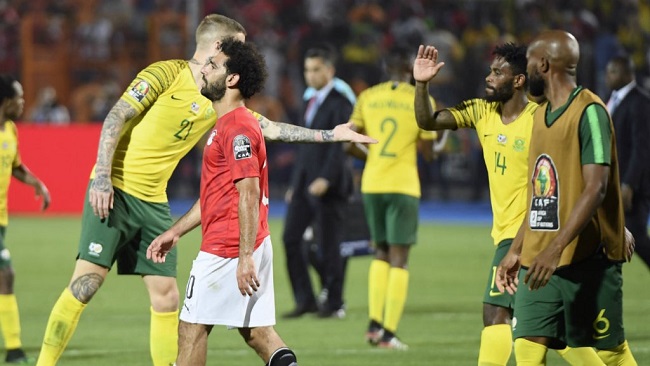Football: Hosts Ivory Coast have high hopes as Africa Cup of Nations kicks off
The first Africa Cup of Nations to be held in Ivory Coast in four decades gets underway on Saturday as the hosts, without their star forward Sebastien Haller, take on minnows Guinea-Bissau at the newly-built Ebimpe Olympic Stadium.
Ivory Coast have been African champions twice before, most recently in 2015 with a team captained by Yaya Toure, and are hoping to thrive under the pressure of playing at home.
However, they can expect intense competition over the next four weeks with a strong field notably featuring 2022 World Cup semi-finalists Morocco, Mohamed Salah’s Egypt, and Sadio Mane’s Senegal, who are aiming to successfully defend the title they won in Cameroon two years ago.
“We feel the expectation every day but we just need to live with it,” Elephants coach Jean-Louis Gasset, the 70-year-old Frenchman, told reporters in the country’s economic capital Abidjan on Friday.
“My job is to transform the pressure into something positive, to make sure that gives the players strength and confidence.”
Sitting alongside him, midfielder Franck Kessie, formerly of Barcelona, acknowledged: “We are all aware of what is expected of us.”
This Ivory Coast team lacks a superstar like former hero Didier Drogba and is without Borussia Dortmund striker Haller for at least the opening match as he continues to recover from an ankle injury.
A fit Haller — whose face appears regularly on billboards lining Abidjan’s traffic-choked streets — would be a certain starter for the Elephants against Guinea-Bissau, who have never won a game in three previous appearances at the AFCON.
The West African nation last hosted the AFCON in 1984, when just eight teams took part and Roger Milla’s Cameroon emerged victorious.
This edition was initially supposed to take place last June and July in order to avoid a clash with the middle of the season in Europe, where so many leading African players are based.
However, fears over staging it during the rainy season led to the tournament — which is the third edition to feature 24 teams — being pushed back to its more traditional January and February slot.
Trouble-free month?
The main focus for local organisers, and for the Confederation of African Football (CAF), is to make sure the competition unfolds without anything like the awful events that marred the last edition in Cameroon.
The legacy of that AFCON was scarred by the disaster at the Olembe Stadium in Yaounde, when eight people were killed and dozens more were injured in a crush and stampede prior to the last-16 tie between Cameroon and the Comoros.
The Ivorian government has invested around $1.5 billion in improving infrastructure to prepare for the tournament, and there will be some 17,000 police and soldiers deployed to ensure security.
“I am satisfied the appropriate steps have been taken to make sure we will totally avoid the painful experience we had in Cameroon,” CAF president Patrice Motsepe said on Friday at Abidjan’s Culture Palace, across the Ebrie Lagoon from the city’s main business district.
Matches are being played in five different cities, with the capital Yamoussoukro, Bouake, coastal resort San Pedro, and northern town Korhogo hosting games as well as Abidjan.
There are two venues in the economic capital, with the centrally-located Felix Houphouet Boigny Stadium being used as well as Ebimpe, the new stadium which is officially named after Ivorian President Alassane Ouattara.
Nigeria, who are in Group A with the hosts, begin their campaign against Equatorial Guinea at Ebimpe on Sunday.
The Super Eagles are pinning their hopes on Victor Osimhen, the Napoli striker who was recently named African footballer of the year for 2023, after being hit by a series of injury withdrawals leading up to the tournament.
Salah’s Egypt start their bid to win a record-extending eighth AFCON title later on Sunday in Abidjan when they take on Mozambique, another nation that has never won a match at the tournament.
Four-time champions Ghana also kick off on Sunday against Cape Verde.
Source: AFP




